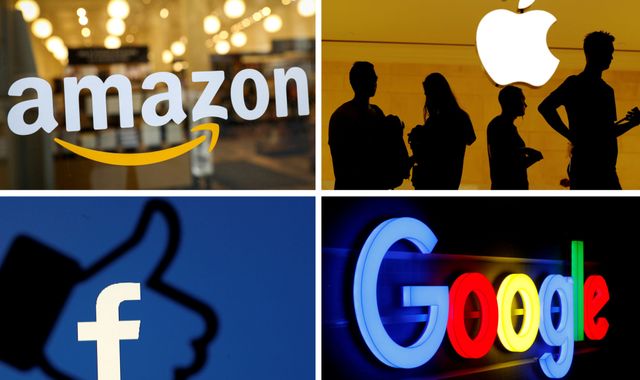UK chancellor Rishi Sunak didn’t mention anything about the UK’s plans for the digital service tax in today’s 2020 Budget. But shortly after his speech, documents quietly appeared online confirming that the UK would be moving ahead with the tech tax, despite warnings of the potential impact on trade relations with the US.
The document confirms that large multinational enterprises in the social media, search engine or online marketplace spaces will be liable to a digital services tax when “the group’s worldwide revenues from these digital activities are more than £500m and more than £25m of these revenues are derived from UK users”. Revenues derived from UK users will be taxed at a rate of 2 per cent thereafter.
There had been doubts that the UK would move forward with the digital services tax for a number of reasons. France, which made the decision to plough ahead with its own digital services tax in late 2018, put the brakes on amid backlash from Washington and President Trump’s threats of retaliatory tariffs on French imports. In turn, France threatened that the EU would respond in kind to any aggressive sanctions.
In January, at the World Economic Forum, the “Davos compromise” position was agreed upon between France and the US. Under this agreement, the French aren’t collecting DST this year and no tariffs are being imposed by the US.
In January, the UK was advised to “hold fire” on the new tax by Secretary General Angel Gurria at the OECD (the organisation tasked with brokering an international solution to the issue of taxing global tech companies), until a global agreement on the issue was reached. Without such an agreement, there would be the risk of “a cacophony” with countries going their own way, the body said at the time.
However, given the length of time it will take to come to achieve a consensus on this, some countries are moving to implement their own DSTs in the meantime.
Unsurprisingly, there are concerns that the UK government introducing DST would risk sparking Trump’s ire and prompting retaliation at a crucial juncture for crafting a US trade deal post-Brexit. Unlike France, the UK hasn’t said it will delay the introduction of the tax until global legislation has been agreed upon.
“The government remains committed to developing a multilateral solution to the challenges digitalisation has created for the corporate tax system and will repeal the DST once an appropriate global solution is in place,” the UK government site reads.
The proposal for DST was first put forward by Philip Hammond in the 2019 spring statement. The argument for the tax is based on the idea that it’s where digital activity takes place, not where firms have their European headquarters that matters. Italy, Austria and Turkey are also considering introducing new levies.
The government says that the long-term solution remains a commitment to OECD-led international solution, and will ‘dis-apply’ DST after this is in place. The document says that legislation will be introduced for the new area.
The documents shows that the UK government expects to raise £70m from the tax between 2019 and 2020, £280m between 2020 and 2021, increasing to £515 between 2024 and 2025.
“Forecasts show higher receipts than previously budgeted – and for longer. Global tax reform at the OECD, and the post-Brexit US trade deal – will determine whether this is interim or here to stay,” says David Murray, digital tax expert at PWC on Twitter.
The UK government’s decision to disregard Trump’s hardline stance on Huawei made the President “apoplectic”. It remains to be seen how this latest little rebellion will go down.













